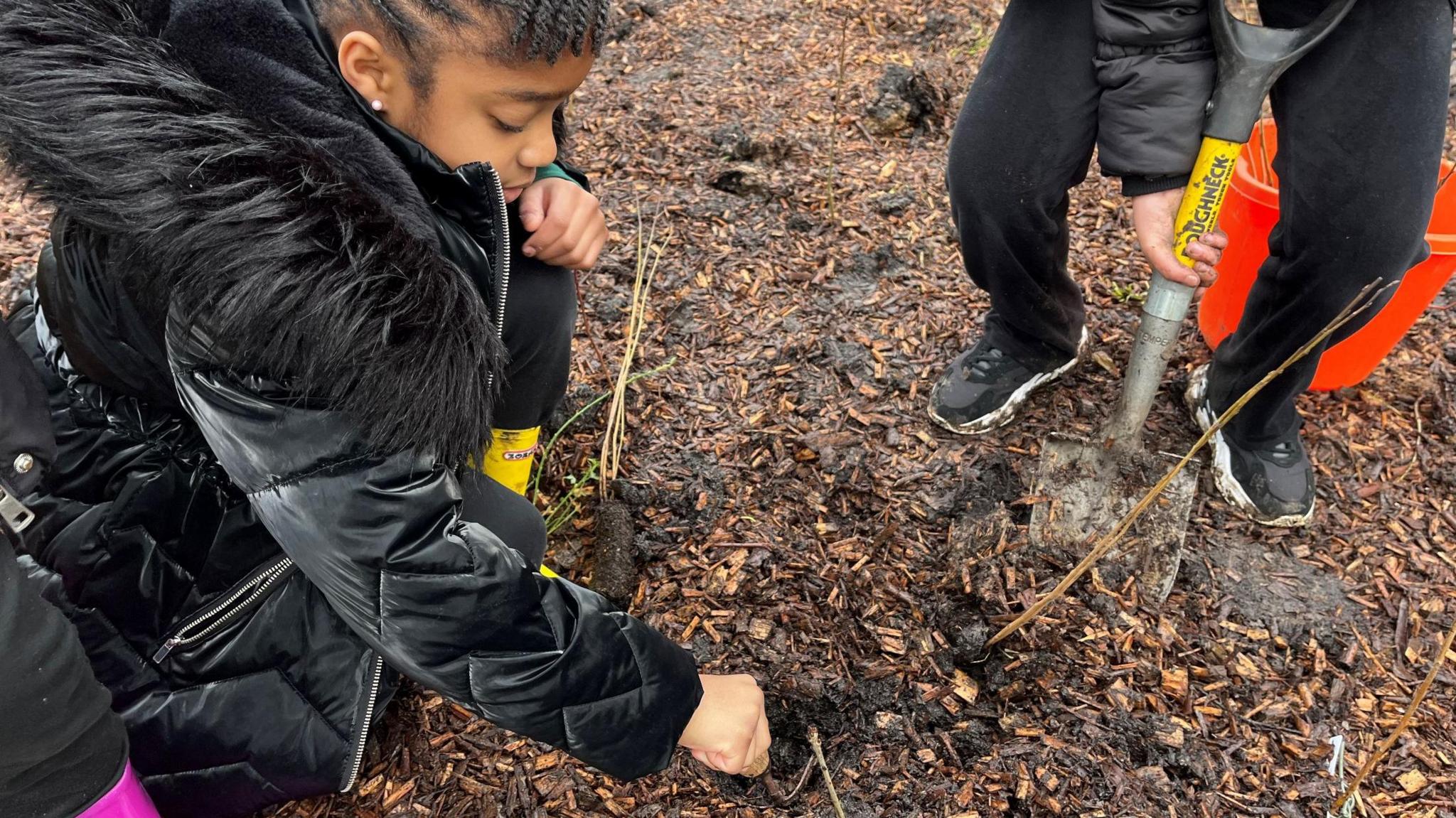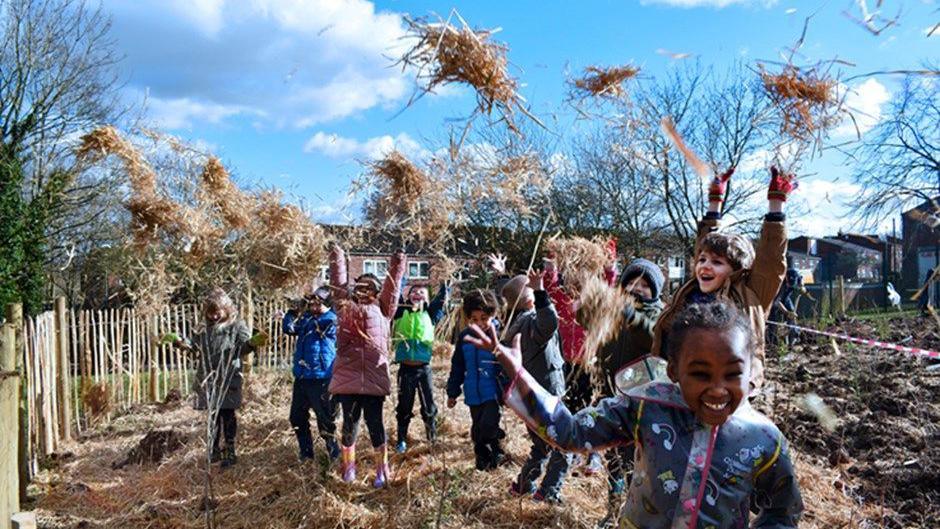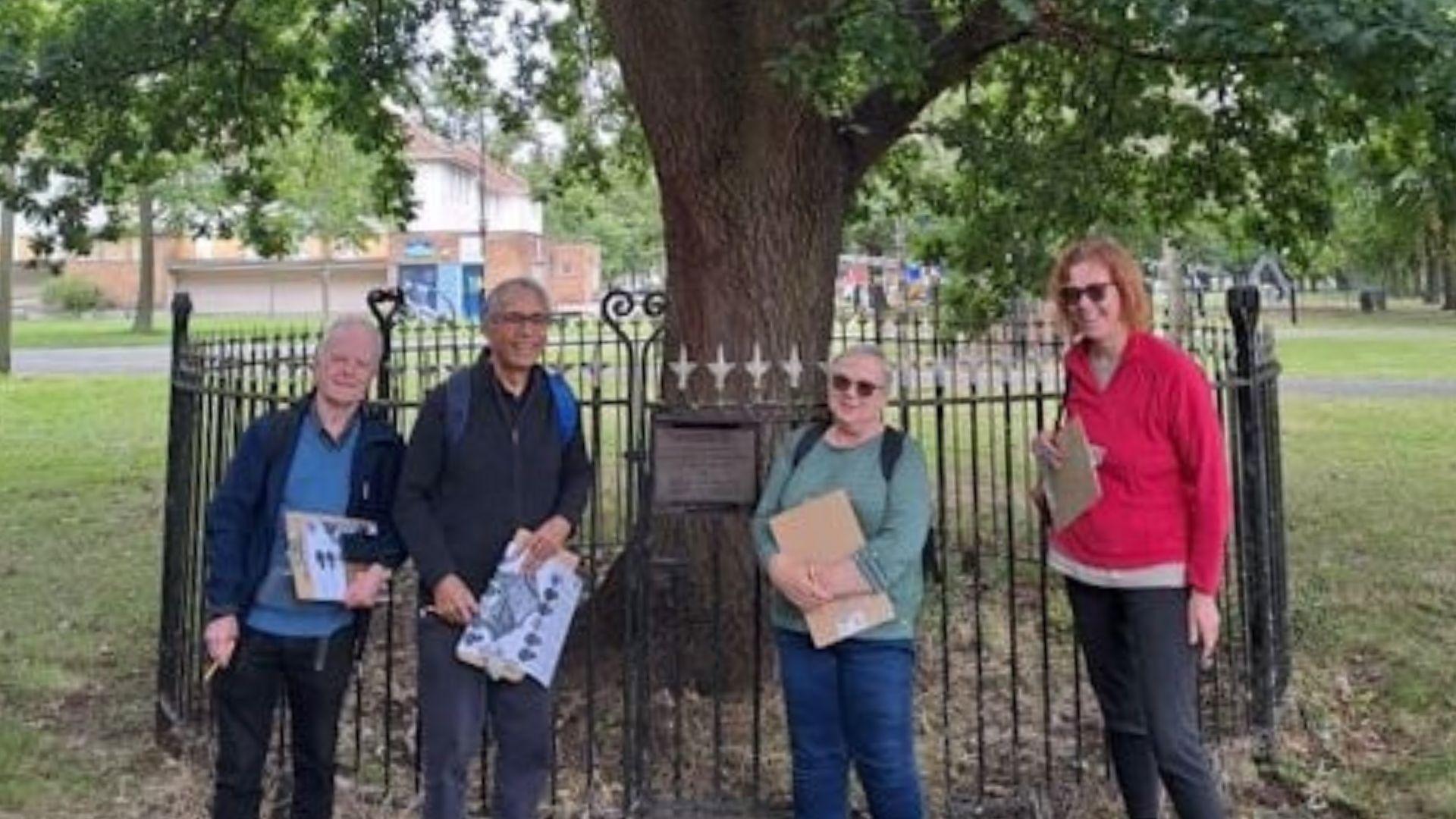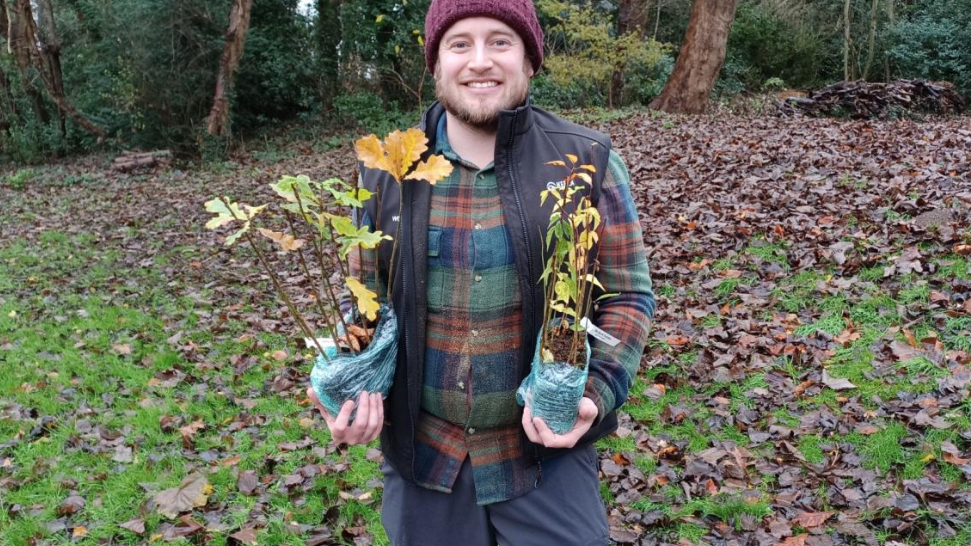Children help create city's 30th 'tiny forest'

Trees have been planted by pupils to create a "tiny forest" in the corner of a playing field
- Published
Children and volunteers have been helping to plant hundreds of new trees to create a "tiny forest".
Leicester City Council has been working on the project to grow a network of urban micro forests in schools and community spaces across the city with environmental charity Earthwatch since spring 2021.
Pupils from Eyres Monsell Primary School have this week helped to grow the city's total number of tiny forests to 30.
Elaine Pantling, assistant city mayor for schools and chair of governors at the school, said the forests - which involved planting 600 new trees in a plot no bigger than a tennis court - were "a fantastic resource".

Since 2021, almost 18,000 new trees have been planted in Leicester as part of the programme
Ms Pantling said: "They are a brilliant way of bringing more greenery, trees, and wildlife on to schoolgrounds and help children reconnect with nature, support their emotional wellbeing and add value to the educational experience."
The council said the forests featured a mix of native tree species, including wych elm, silver birch, hawthorn and broom, and were designed to attract more than 500 animal and plant species within three years.
Pupil Amelia, nine, said: "We are planting trees and it is good for the environment."
The council said Leicester was one of the first cities in the UK to take part in the programme, with its first tiny forest created at Queensmead Primary Academy, in Braunstone, in March 2021.

The council said the forests provided outdoor classrooms and accessible green spaces
The council said tiny forests were based on a forest management method developed in the 1970s by Japanese botanist Dr Akira Miyawaki.
The method encourages accelerated forest development, uses no chemicals or fertilisers, and requires low management and maintenance after the first two years, the authority said.
Marc Tench, sustainable schools manager at the council, said: "Tiny forests do grow really quickly... and will create a mature woodland in the space of about 10 years, which would normally take about 100 years if left to nature."
By 2030, Earthwatch aims to have planted 500 tiny forests across Europe.
Get in touch
Tell us which stories we should cover in Leicester
Follow BBC Leicester on Facebook, external, on X, external, or on Instagram, external. Send your story ideas to eastmidsnews@bbc.co.uk, external or via WhatsApp, external on 0808 100 2210.
- Published7 January

- Published22 November 2024

- Published30 November 2024
